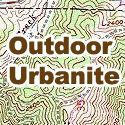 While it's possible for university students to spend all of their time outside of scheduled classes, so as to be learning even more (perish the thought!), by attending additional guest research seminars and lectures, most students don't take advantage of opportunities to hear well-known speakers who come to campus.
While it's possible for university students to spend all of their time outside of scheduled classes, so as to be learning even more (perish the thought!), by attending additional guest research seminars and lectures, most students don't take advantage of opportunities to hear well-known speakers who come to campus.
Realizing this, Annette Dubreuil, the IRIS co-ordinator, spearheaded an effort to bring invited speakers, who will be of interest to the broader community, into the classroom, and to open up these lectures as IRIS events. Last Thursday, former mayor of Toronto, David Miller spoke to students in Dr. Kaz Higuchi's course, Climate Change Science and Policy (ENVS 3400).
Originally, Kaz had discussed convening a panel to debate opposing views on climate change, but David categorically dismissed this option; as he put it - the climate skeptics funded by corporate interests don't need another platform. In case you're wondering, Dr. Higuchi is a climate scientist who recently retired from Environment Canada's Adaptation and Impacts Research Group. He has been teaching in the Faculty of Environmental Studies for several years, and he is very concerned that academics from all disciplines learn how to debate and handle arguments for and against climate change.
 David Miller, who has been teaching at the Polytechnic Institute of New York University based in Brooklyn, showcased his oratorical skills in a tour-de-force lecture about how Toronto and other cities are mitigating and adapting to the effects of climate change.
David Miller, who has been teaching at the Polytechnic Institute of New York University based in Brooklyn, showcased his oratorical skills in a tour-de-force lecture about how Toronto and other cities are mitigating and adapting to the effects of climate change.
It was a text book lesson in how to explain, very clearly, evidence-based policy that leads to actions which are beneficial for people, the planet and, profits. Citing many statistics and studies, as he laid out the challenges facing cities, David described and explained the steps that Toronto took while he was mayor. He described Change is in the Air, the 2007 Climate Change, Clean Air and Sustainable Energy Action Plan, as well as other Toronto city plans, and how they are driving action on combatting climate change.
David also explained some fascinating, green jobs technologies, including one in which heat is extracted from sewage - this also has a high "ick" factor. He challenged the audience of students, faculty and staff to come up with a snappier name for the company and product - International Wastewater Heat Exchange Systems (IWHES)! (Check out the awesome video on their site).
 We filled one of the gorgeous new lecture halls in the recently opened Life Sciences Building which is built to LEED silver rating standards, on the Keele Campus. After a 45-minute lecture, students lined up to ask David questions, for 45 minutes, about all kinds of sustainability, climate change and social justice issues. After the talk, I asked Roger Keil, director of York's CITY Institute, who was sitting behind me, why he hadn't asked a question, he quipped "what for? the students did a great job!"
We filled one of the gorgeous new lecture halls in the recently opened Life Sciences Building which is built to LEED silver rating standards, on the Keele Campus. After a 45-minute lecture, students lined up to ask David questions, for 45 minutes, about all kinds of sustainability, climate change and social justice issues. After the talk, I asked Roger Keil, director of York's CITY Institute, who was sitting behind me, why he hadn't asked a question, he quipped "what for? the students did a great job!"
And, after all the questions were finished, David stayed for a bit longer, and chatted informally with students, many of whom were keen to have their photos snapped with him. Enrique Miranda (Student Engagement co-ordinator) and Ramsen Yousif (President) of the Undergraduate Political Science Council executive, a co-sponsor of the event, are shown above left, with the former mayor.
Score one for a brilliantly delivered explanation of evidence-based policy.
Score two for articulate speakers who can explain the science and connect the dots for making the social justice case clear, when it comes to climate change.
Score three for former politicians who live on in more ways than in old fridge magnets (that's my super-duper green fridge at right, on which we have a collection of old magnets, including one from when David Miller was our city councillor - back in 1995). One student remarked after the lecture "I just learned more about municipal planning in this lecture than I did all year!"
The lecture will soon be available on the IRIS website, in case you missed it and want to hear what David had to tell the students.
Dawn R. Bazely















 I am currently in Boston (well Cambridge really), my old residence of years past. Like my subsequent five year sojourn in Toronto, I never needed a car in what
I am currently in Boston (well Cambridge really), my old residence of years past. Like my subsequent five year sojourn in Toronto, I never needed a car in what